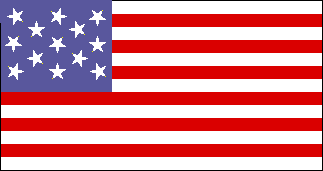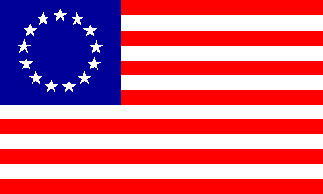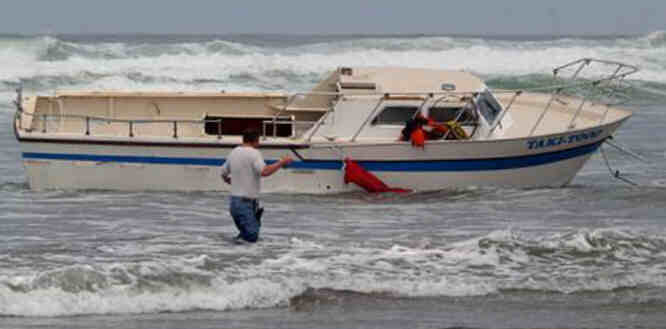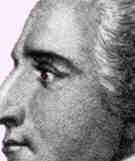1904 Fracaso del Ejército ruso en Port Arthur.
1900 Las legaciones extranjeras en China son amenazadas por 20'000 “boxers” que rodean Pekín.
1900 Hawaiian Republic becomes the US Territory of Hawaii
1864 Battle of Pine Mt, Gen Leonidas Polk killed in action
1863 Second assault on Port Hudson, Louisiana 1863 Siege on Vicksbur
| ^
1863 Second Battle of Winchester A small Union garrison in the Shenandoah Valley town of Winchester, Virginia, is easily defeated by the Army of Northern Virginia on the path of the Confederate invasion of Pennsylvania. In early June, General Robert E. Lee's Army of Northern Virginia began an invasion of the North. Lee's men pulled out of defenses along the Rappahannock River and swung north and west into the Shenandoah Valley. Using the Blue Ridge Mountains as a screen, the Confederates worked their way northward with little opposition. General Joseph Hooker, commander of the Army of the Potomac, was unsure of the Confederates' intentions. He tracked Lee's army from a distance, staying safely away to protect Washington, D.C. During this time, Winchester was in Union hands. The city was literally at the crossroads of the war, so it changed hands continually. Robert Milroy, the commander of the Yankees in Winchester, was unaware that the vanguard of Lee's army was heading his way. He had received some warnings from Washington, but an order to evacuate Winchester did not reach him because the Confederates had cut the telegraph lines. As late as 11 June Milroy bragged that he could hold the town against any Confederate force. His assertion was rendered ridiculous when Richard Ewell's Rebel corps crashed down on his tiny garrison. Ewell's force quickly surrounded the Yankee's. After a sharp battle, Ewell captured about 4000 Federals, while Milroy and 2700 soldiers escaped to safety. Ewell lost just 270 men but captured 300 wagons, hundreds of horses, and 23 artillery pieces. Milroy was relieved of his command and later arrested, although a court of inquiry found that he was not culpable in the disaster. |
^
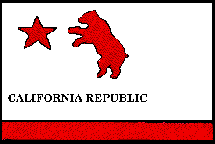 1846
California's Bear Flag revolt begins 1846
California's Bear Flag revolt beginsAnticipating the outbreak of war with Mexico, American settlers in California rebel against the Mexican government and proclaim the short-lived California Republic. The political situation in California was tense in 1846. Though nominally controlled by Mexico, California was home to only a relatively small number of Mexican settlers. Former citizens of the United States made up the largest segment of the California population, and their numbers were quickly growing. Mexican leaders worried that many American settlers were not truly interested in becoming Mexican subjects and would soon push for annexation of California to the United States. For their part, the Americans distrusted their Mexican leaders. When rumors of an impending war between the US and Mexico reached California, many Americans feared the Mexicans might make a preemptive attack to forestall rebellion. In the spring of 1846, the American army officer and explorer John C. Fremont arrived at Sutter's Fort (near modern-day Sacramento) with a small corps of soldiers. Whether or not Fremont had been specifically ordered to encourage an American rebellion is unclear. Ostensibly, Fremont and his men were in the area strictly for the purposes of making a scientific survey. The brash young officer, however, began to persuade a motley mix of American settlers and adventurers to form militias and prepare for a rebellion against Mexico. 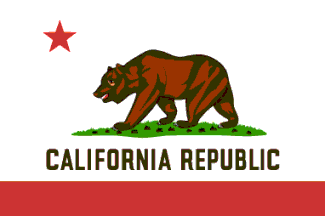 Emboldened by Fremont's encouragement, on this day a party of 33 Americans
under the leadership of Ezekiel Merritt and William Ide invade the
largely defenseless Mexican outpost of Sonoma just north of San Francisco.
Fremont and his soldiers did not participate, though he had given
his tacit approval of the attack. Merritt and his men surrounded the
home of the retired Mexican general, Mariano Vallejo, and informed
him that he was a prisoner of war. Vallejo, who was actually a strong
supporter of American annexation, was more puzzled than alarmed by
the rebels. He invited Merritt and a few of the other men into his
home to discuss the situation over brandy. After several hours passed,
Ide went in and spoiled what had turned into pleasant chat by arresting
Vallejo and his family.
Emboldened by Fremont's encouragement, on this day a party of 33 Americans
under the leadership of Ezekiel Merritt and William Ide invade the
largely defenseless Mexican outpost of Sonoma just north of San Francisco.
Fremont and his soldiers did not participate, though he had given
his tacit approval of the attack. Merritt and his men surrounded the
home of the retired Mexican general, Mariano Vallejo, and informed
him that he was a prisoner of war. Vallejo, who was actually a strong
supporter of American annexation, was more puzzled than alarmed by
the rebels. He invited Merritt and a few of the other men into his
home to discuss the situation over brandy. After several hours passed,
Ide went in and spoiled what had turned into pleasant chat by arresting
Vallejo and his family.Having won a bloodless victory at Sonoma, Merritt and Ide then proceeded to declare California an independent republic. With a cotton sheet and some red paint, they constructed a makeshift flag with a crude drawing of a grizzly bear, a lone red star (a reference to the earlier Lone Star Republic of Texas), and the words "California Republic" at the bottom [first flag, above right]. From then on, the independence movement was known as the Bear Flag Revolt. After the rebels won a few minor skirmishes with Mexican forces, Fremont officially took command of the "Bear Flaggers" and occupied the unguarded presidio of San Francisco on 01 July. Six days later, Fremont learned that American forces under Commodore John D. Sloat had taken Monterey without a fight and officially raised the American flag over California. Since the ultimate goal of the Bear Flaggers was to make California part of the US, they now saw little reason to preserve their "government." Three weeks after it had been proclaimed, the California Republic quietly faded away. Ironically, the Bear Flag itself proved far more enduring than the republic it represented: it became the official state flag [< second flag shown] when California joined the union in 1850. |
